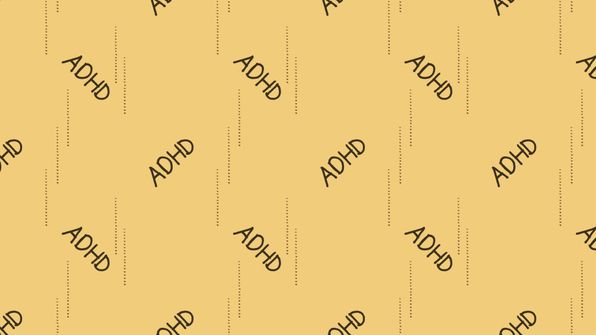
Ritalin and Fasting: Do They Mix Well for Women?
Today, let's explore an intriguing combination: Ritalin and intermittent fasting (IF). This duo might sound unusual, but there's more to it than meets...

Fasting and Adderall use have become hot topics, especially among women. Fasting, particularly intermittent fasting (IF), is often touted for its health benefits and weight loss potential. Adderall, a medication for ADHD, sometimes moonlights as a weight-loss aid and cognitive enhancer.
But combining these two practices can be like mixing chocolate and pickles: intriguing, but is it really a good idea?
Let’s explore the potential benefits and risks of using Adderall while fasting.
Fasting has been around for centuries, serving various purposes—health, religious, and cultural. Intermittent fasting is one of the most popular methods today. It involves alternating between periods of eating and not eating, kind of like playing hard to get with food. Popular methods include the 16/8 method (fasting for 16 hours and eating during an 8-hour window), the 5:2 diet (eating normally for five days and barely eating for two), and the occasional 24-hour fast.
Fasting can help with weight loss and improve metabolic health by reducing calorie intake and boosting insulin sensitivity. For example, studies show that intermittent fasting can lead to a weight loss of 3-8% over 3-24 weeks, which is more than most calorie-restriction diets.
Fasting also triggers autophagy, a process that cleans out damaged cells and might make you live longer—if you don’t faint from hunger first. Research suggests fasting can even make your brain healthier, reducing the risk of Alzheimer’s by 36%.**
Adderall is a prescription medication made up of amphetamine and dextroamphetamine. It’s mainly used to treat ADHD and narcolepsy. Adderall works by increasing certain chemicals in the brain, helping with focus and attention. Think of it as brain fuel, but without the catchy jingle.
People with ADHD often find Adderall very helpful in managing their daily lives. Approximately 75-80% of children with ADHD show improvement in symptoms when using stimulant medications like Adderall. Some people also use it off-label to boost memory, concentration, and even for weight loss because it can curb appetite—kind of like having a personal trainer who also happens to be a drill sergeant.
Now, let’s talk about the elephant in the room—or rather, the lack thereof. Adderall’s appetite-suppressing qualities have made it a go-to for those looking to shed some pounds. About 28% of people prescribed Adderall report a decrease in appetite. It’s like having a built-in reminder that food is optional. However**, this isn’t exactly the healthiest or safest method for weight loss.** Sure, you might drop a few sizes, but you could also end up with a side of anxiety, insomnia, or worse. Weight loss should be about health, not just fitting into those skinny jeans you bought on sale.
Combining fasting with Adderall use can be like adding jalapeños to your ice cream—interesting but potentially dangerous. This combination can have both positive and negative effects on the body and mind.
On the plus side, both fasting and Adderall can help with weight loss. Fasting reduces your eating hours, and Adderall reduces your hunger. Together, they might make it easier to drop pounds. Studies indicate that fasting can reduce body weight by 4-7% in 6-24 weeks. Both can also improve focus. Fasting keeps your brain healthy through autophagy, while Adderall boosts brain chemicals that help you concentrate. Combining them might give you a mental edge sharper than your grandmother’s wit.
But beware of the risks. Fasting can sometimes lead to not getting enough nutrients. Adderall’s appetite suppression can make this worse, leading to deficiencies in essential vitamins and minerals. This is particularly concerning for women, who need good nutrition for overall health and hormonal balance. Women are already at a higher risk of iron deficiency anemia, with about 20% of women being iron deficient, compared to 3% of men. Adderall can cause side effects like anxiety (in 20-25% of users), trouble sleeping (27%), and mood swings. Fasting might add stress to your body and mind, making these side effects worse.

Cardiovascular risks are also a concern. Both fasting and Adderall can affect heart health. Fasting can change blood pressure and heart rate, while Adderall is known to increase both by 3-6 mmHg. Women with existing heart conditions need to be particularly cautious.
Additionally, both practices can affect hormone levels. Women are sensitive to changes in hormones, which can impact menstrual cycles and reproductive health. Long-term fasting or Adderall misuse could disrupt these balances. For instance, fasting has been shown to alter levels of leptin and insulin, which are critical for regulating menstrual cycles.
If you’re a woman considering or already combining fasting with Adderall, here are some tips to help manage risks and maximize benefits:
When combining fasting with Adderall, it’s important to manage the potential risks while maximizing the benefits. Here are some detailed and precise tips to help you navigate this combination:
Combining fasting and Adderall use can offer benefits but also presents risks, especially for women. It’s important to prioritize balanced nutrition, regular medical check-ups, and a personalized approach to manage these practices safely. As more research emerges, we’ll better understand how to navigate the interplay between fasting and Adderall use effectively. For now, careful consideration and medical supervision are key to ensuring health and well-being. And remember, health should never come at the cost of your happiness or peace of mind.
A: Yes, you can take Adderall while fasting, but it’s important to consult your healthcare provider first. Adderall can suppress appetite, which might make fasting easier, but it can also lead to nutritional deficiencies and other side effects if not monitored properly.
A: Adderall itself doesn’t contain calories, so it doesn’t break a traditional fast. However, it can affect your metabolism and energy levels, so it’s crucial to ensure you’re still getting essential nutrients during your eating periods.
A: Fasting can influence how your body metabolizes Adderall. Some people may find that the medication’s effects are intensified on an empty stomach, while others may experience heightened side effects. Monitoring your body’s response and adjusting accordingly with medical guidance is essential.
A: Combining Adderall and fasting can increase the risk of nutritional deficiencies, dehydration, anxiety, and cardiovascular issues. Women need to be particularly cautious about maintaining adequate nutrient intake and staying hydrated to avoid these risks.
A: Focus on nutrient-dense foods during your eating window. Include a variety of fruits, vegetables, lean proteins, and whole grains to ensure you’re getting all essential vitamins and minerals. Staying hydrated is also crucial, so drink plenty of water throughout the day. Consider taking a multivitamin if recommended by your healthcare provider.

Today, let's explore an intriguing combination: Ritalin and intermittent fasting (IF). This duo might sound unusual, but there's more to it than meets...

Today, we're delving into an intriguing combination: Strattera and intermittent fasting (IF). This duo might sound unconventional, but there's more to...

If you’re here, you’re probably on the Intermittent Fasting (IF) train, trying to shed those extra pounds while juggling the chaos of life. And if you...

Intermittent fasting (IF) is a popular health strategy, known for its benefits like boosting metabolism, improving energy, and aiding in weight loss. ...

Weight management can be tough for anyone, but for women with neurodiverse conditions like ADHD, autism, and dyslexia, it can feel like navigating a m...